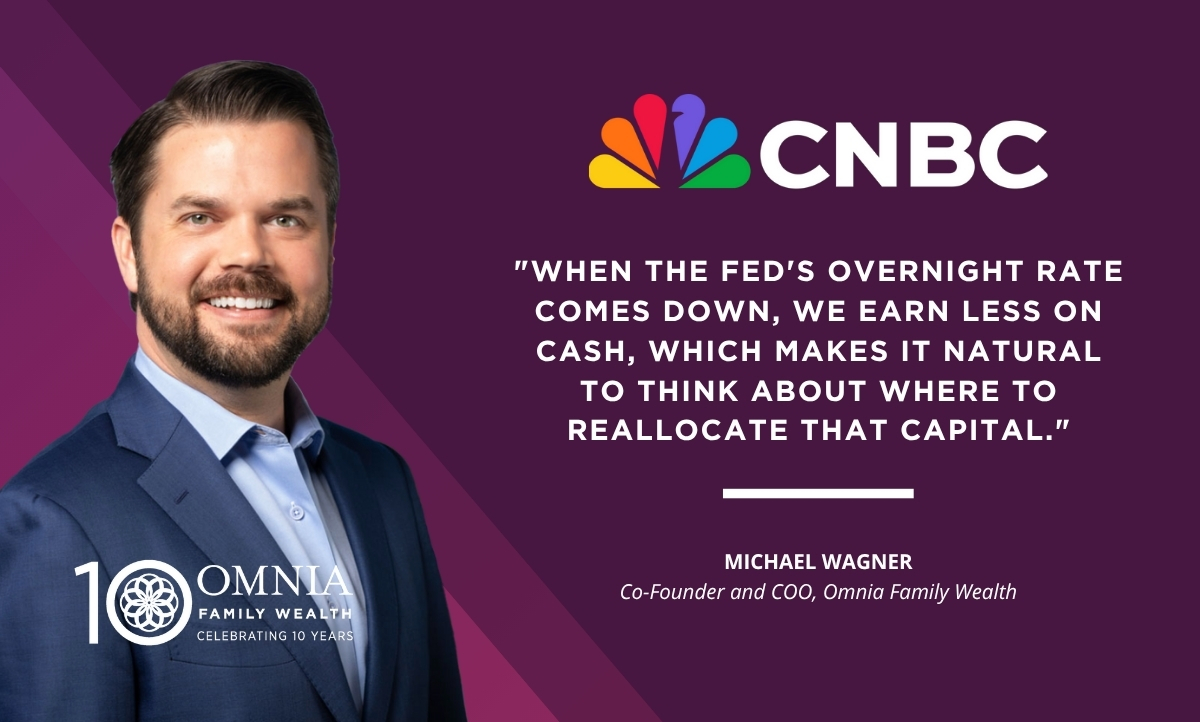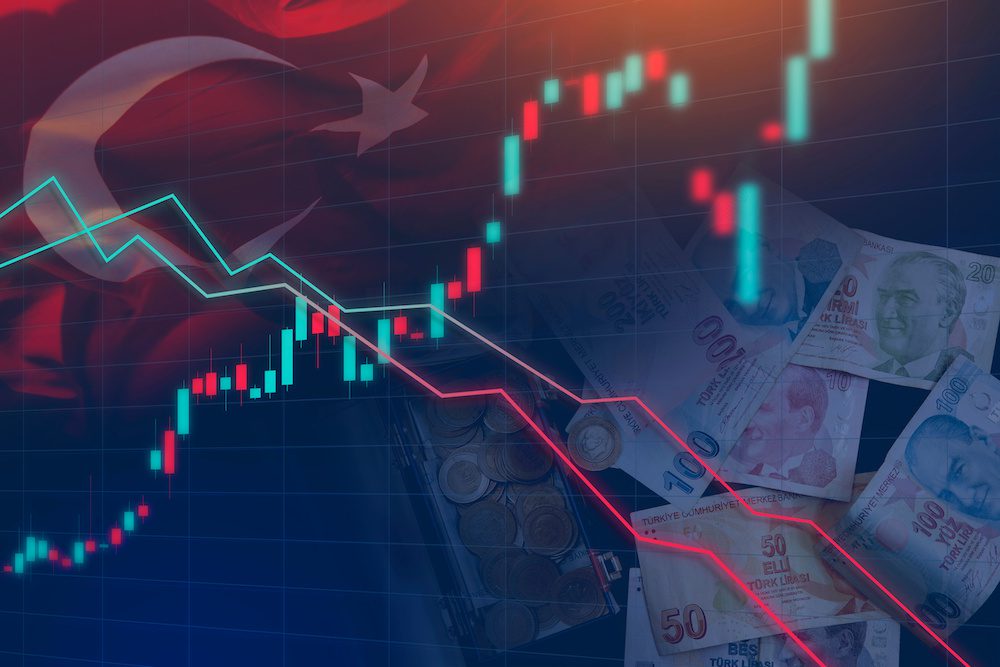
Rare Earths and Supply Chains: Vulnerabilities Underscore the Need for Economic Shift in US
As we continue to turn the corner in our battle against Covid-19, our next great challenge will be an economic one.
It is well documented that the pandemic has already caused major disruptions in the world economy. Further, as business restrictions continue to ease, elevated consumer demand is revealing the magnitude of the most pressing bottleneck in our economy, our weakened and fragile supply chains.
The Business Insider notes, “supply-chain bottlenecks caused record shortages of everyday products from household goods and electronics to cars, food, and raw materials.[1]”
Evidence of this can be found anywhere – from the rising costs of gas when we fill up our cars, to the “closed” signs in the windows of too many local businesses, to the empty shelves littered across our favorite stores.
Seeing empty shelves in stores and rising prices across the board is jarring.
Importantly, while the safety and security of our key supply chains was an issue before the pandemic, it will certainly remain one for the foreseeable future.
At the height of the Covid-19 pandemic, policymakers and consumers were rightly concerned over the shortages of masks and medicines. Why? Because “acetaminophen, antibiotics and high blood pressure treatments are among a slew of pharmaceutical ingredients made predominantly by China.[2]” Further to this, if “China shut the door on exports of medicines and their key ingredients and raw material, U.S. hospitals and military hospitals and clinics would cease to function within months, if not days.[3]”
Chinese supply chain hegemony over key strategic interests is not limited to medical resources.
According to the American Geosciences Institute, “Rare-earth elements (REE) are necessary components of more than 200 products across a wide range of applications, especially high-tech consumer products, such as cellular telephones, computer hard drives, electric and hybrid vehicles, and flat-screen monitors and televisions. Significant defense applications include electronic displays, guidance systems, lasers, and radar and sonar systems.[4]” Indeed, rare earth elements and the magnets they are used to fabricate will remain a crucial part of our future.
China dominates the rare earth industry across the full supply chain, and has effectively established a single point-of-failure across various industries that our economic prosperity and national security rely upon. As stated in 1992 by Deng Xiaoping, China’s preeminent leader following the death of Mao Zedong, four years after China’s output of rare earths surpassed that of the United States, “the Middle East has oil and China has rare earths.[5]” Learning from the devastating impacts of OPEC’s 1970s oil embargoes on the American economy, a similar risk over rare earths and magnets could paint a bleak picture for US industry and national security if this challenge is not addressed.
Recognition of this risk crosses political party lines. Despite the hyper-polarized nature of U.S. politics today – where Democrats and Republicans could not even agree on how to rename the Rayburn Cafeteria – there is a bi-partisan consensus on the economic and security threats emanating from China and the necessity to secure our key supply chains. Government should do what it can to incentivize and support the private sector, as our vibrant and entrepreneurial free market is our best competitive advantage that positions us to overcome Chinese debt diplomacy and manipulative business practices through American creativity and innovation.
There is strong reason for optimism with this approach:
Consider the example set by MP Materials, a public company that owns and operates Mountain Pass, the only scaled rare earth mining and processing site in North America.
After the mine sat idle for years, the company acquired Mountain Pass in 2017 and new management quickly restarted production, while embarking on a three-stage, highly ambitious plan to bring the full rare earth supply chain back to the United States.
With sustainability core to its mission, MP Materials vowed to create the world’s cleanest, most environmentally conscious rare earth facility in the world. They adopted 11 of the United Nations’ 17 Sustainable Development Goals, including clean energy, green mining, ownership culture and employee empowerment, and securing of strategic resources.[6]”
They went public through a SPAC in November of 2020, and in the same year, they produced more than 38,500mt of rare earths in concentrate, which represented more than 15% of global consumption. Importantly, rather than remaining complacent with a profitable business that sends all their rare earth concentrate to China for refining and processing, MP Materials recently announced “a binding, long-term agreement with General Motors (NYSE: GM) to supply domestically sourced rare earth materials, alloy and finished magnets for electric motors in more than a dozen GM models.7”
To fulfill the GM supply agreement, “MP is moving forward on developing a 200,000 square foot greenfield metal, alloy and neodymium-iron-boron (NdFeB) magnet manufacturing facility in Fort Worth, Texas. The facility will also serve as the business and engineering headquarters for the rare earth producer’s growing magnetics division, MP Magnetics.[7]”
When all the “experts” said it couldn’t be done, American creativity and innovation made the “impossible” a reality.
MP Materials is a lesson we can all learn from.
There is no doubt that China has experienced rapid economic growth in the last two decades, in part fueled by significant US investment. Powered by a centrally controlled government eager to manipulate its businesses, exploit its citizenry as cheap labor, and ravage the environment without remediation, China has become the perennial global powerhouse in international trade as the world’s largest manufacturer and exporter of goods.
However, America can and must compete.
We are the country that first put people on the moon and there is nothing that our collective will cannot achieve. As a nation, we must do what we do best – innovate, collaborate, and push vigorously and ethically for the safety of our nation and prosperity of our businesses and our people. Our economic future depends on it.
Click here to download the PDF.
Sources:
1. Why the Supply Chain Is in Crisis (businessinsider.com)
2. Pandemic Lays Bare U.S. Reliance on China for Drugs – WSJ
3. U.S. officials worried about Chinese control of American drug supply (nbcnews.com)
4. What are rare earth elements, and why are they important? | American Geosciences Institute
5. Wang Denghong. Research Significance of Key Minerals, Determination of Mineral Types, Resource Attributes, Prospecting Progress, Existing Problems and Main Direction of Attack (关键矿产的研究意义、矿种厘定、资源属性、找矿进展、存在问题及主攻方向), Acta Geologica Sinica, 2019.
6. Sustainability at MP Materials
7. MP Materials enters rare earth magnet supply deal with GM, to build factory in Texas – MINING.COM
Important Information
Omnia Family Wealth, LLC (“Omnia”), a multi-family office, is a registered investment advisor with the SEC. This commentary is provided for educational and informational purposes only. It does not take into account any investor’s particular investment objectives, strategies, tax status, or investment horizon. No portion of any statement included herein is to be construed as a solicitation to the rendering of personalized investment advice nor an offer to buy or sell a security through this communication. Consult with an accountant or attorney regarding individual tax or legal advice.
Advisory services are only offered to clients or prospective clients where Omnia Family Wealth and its representatives are properly licensed or exempt from licensure. Information in this message is for the intended recipient[s] only. Please visit our website https://omniawealth.com for important disclosures.
This content is provided for informational purposes only and is not intended as a recommendation to invest in any particular asset class or strategy or as a promise of future performance. References to future returns are not promises or even estimates of actual returns a client portfolio may achieve.




